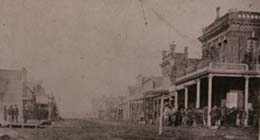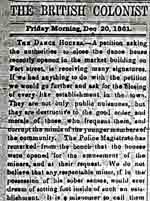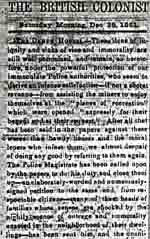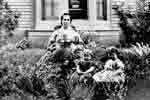
Victoria's Secret:
1859-1866
| The Dance Floor |
| Sexual History |
| Nightly Entertainment |
| Stakeholders |
| Local Halls |
| Original Sources |
| Citations |
| About Us |
| Public Opposition to The Dance Halls |
People:
Aims:
Methods:
Community Complaints Along with religious figures, the public represented the strongest opposition to dance houses. They railed against the loudness, how late the dance halls ran each night, the noise, the lewd and obscene language used by the miners and "squaws", the rowdy congregations of people, and especially the overall immorality of the goings-on at these establishments. Verbal frustrations with the ineffectiveness of the authorities in control were also expressed. The writer of a British Colonist article even suggested the police may have been earning “secret revenue” from these places for allowing the miners entertainment to continue without interference.* Despite “elaborately worded and unanimously signed petition . . . from respectable citizens, "[representing the] opinion of nearly ever decent man in the community,” the police neglected to curb the activities of dance houses.* Although public citizens recognized the financial gains dance halls supplied in retaining miners in town, these community men more strongly desired to maintain Victoria’s moral reputation and good name by closing the local dance halls.*
|


